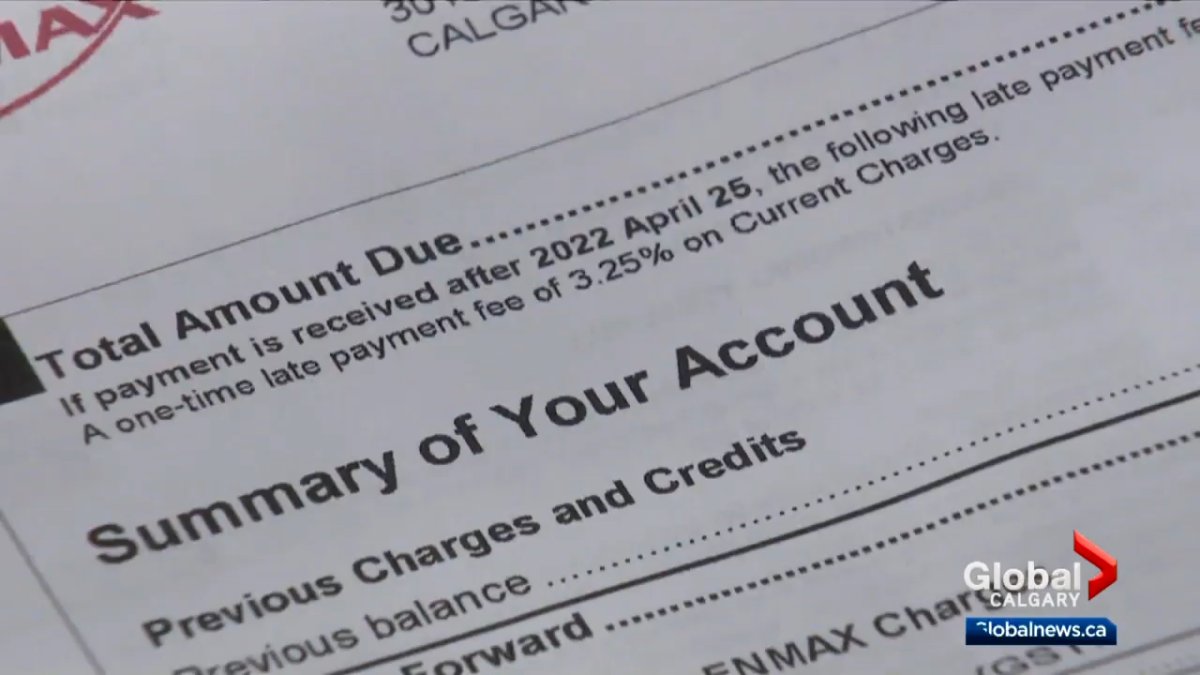Amid an affordability crisis, the City of Calgary is looking at how changing the local access fees charged to utility bills could help Calgarians.

And the mayor says it could improve how the city communicates how it spends those fees to citizens.
It’s the ninth review of the fees since 1991.
Calgary calculates LAFs based on the regulated rate option (RRO) electricity prices and the gas cost flow-through rate (GCFR) on natural gas prices. From January 2021 to July 2023, the RRO jumped 246 per cent, resulting in Calgarians seeing ever-increasing fees on their electricity bill regardless of if they’re on a fixed price contract or RRO pricing.
The city is expecting to collect $100 million in local access fee revenue more than they originally budgeted this year. In 2022, there was $128 million in “positive variance” the city collected.
In the past, that excess revenue has gone into capital projects. Recently, some of those fees went into projects like renewing sound barriers adjacent to major roadways.
Some councillors have suggested a one-time payment back to Calgarians, to help with a continued run of inflation.
“If we do a one-time affordability package, that’s something that we’ll be discussing during budget season (in November),” Mayor Jyoti Gondek said. “It’s hard to say what the right thing to do is with the amount of volatility that we have in the market right now.
“At the very least, we need to be thinking about why our municipality does things differently than others and should it be consumption and price? Should it be consumption alone? There’s a lot of questions to be asked.”
The city calls the LAF a “natural hedge” to help it offset utility expenses. The LAF is paid to the city in lieu of property taxes, which utilities recover from their customers.

According to a report presented to council on Tuesday, the LAF has been reviewed eight times since 1991. The franchise fee was set at 7.5 per cent in 1956, increased to 8 per cent in 1958, and then to the current rate in 1974. That current rate is 11.1 per cent.
That rate did not appear to have a cap on when it could be applied, if the RRO rate jumped.
July’s RRO rate was more than five times what the RRO rate was 20 years ago, according to data from the Utilities Consumer Advocate.
“The gas market is less susceptible to manipulation by producers as there are a great number of small and large producers in Alberta,” the city’s report reads. “Holding a majority of installed Alberta electric generation capacity… five companies wield significant market power.”

Gondek also said if the city continues to use the revenues for capital projects, there should be more transparency around that spending.
“There’s been a lot of parks projects. There’s been a lot of work that could be completed with the extra revenue, but then we need to state that upfront. We can’t continue to call it a hedge,” the mayor said. “If it’s actually a desire to fund projects that are unfunded right now, we need to be pretty honest about that.”
LAFs date back to 1956, when the city started charging for electricity and natural gas under the Municipal Taxation Act.
When the City of Calgary Electric System was restructured into Enmax in 1997, a new franchise agreement kept the same LAF rate and structure
Gondek said it was informative that there have been previous reviews of the LAF, with one coming to a city committee as recently as 2010.
“The missing piece for me continues to be this idea of hedging and the fact that we collect local access fees the way we do to hedge against high electricity prices so that the city has coverage. But I don’t see a breakdown of that,” Gondek said.
City officials continue to evaluate LAF methodologies for electricity and gas and will be providing alternatives to council in December.
“Any changes to the city’s LAF approach will require negotiation with one or more utility providers before seeking approval from the Alberta Utilities Commission,” Tuesday’s report to council reads.
“Any council-approved changes to the LAF methodology will take time to execute; however, it remains the only lever the city can pull to support Calgarians during Alberta’s soaring energy costs in the future.”




Comments